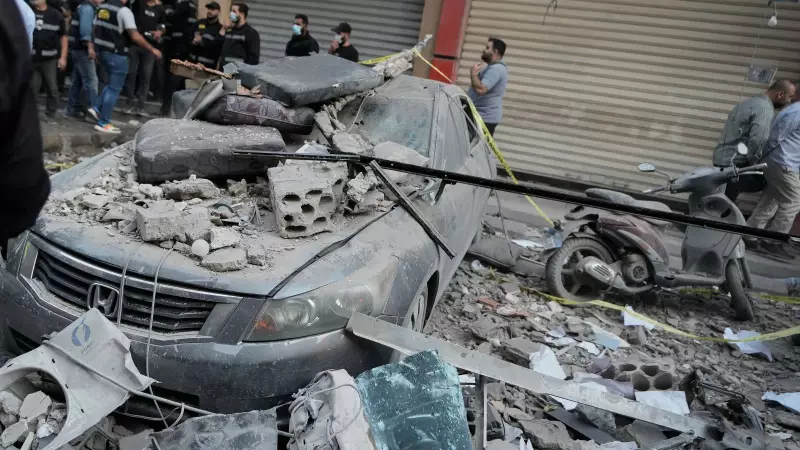
In a significant escalation of regional tensions, Israel conducted a precision airstrike in Beirut targeting Haytham Ali Tabatabai, Hezbollah's chief of staff, on Monday. The attack marks one of the most high-profile assassinations since the beginning of hostilities between Israel and the Lebanese militant group.
The Targeted Strike and Its Immediate Aftermath
The Israeli strike specifically targeted a vehicle in the Ouzai neighborhood of Beirut, a known Hezbollah stronghold. According to security sources, the attack resulted in the death of Tabatabai and two other Hezbollah members who were traveling with him. The precision nature of the strike suggests sophisticated intelligence gathering and military planning.
Hezbollah confirmed Tabatabai's death in an official statement, describing him as a "martyr on the road to Jerusalem" and vowing retaliation for what they called a "cowardly Israeli aggression." The group has declared three days of mourning following the incident.
Who Was Haytham Ali Tabatabai?
Haytham Ali Tabatabai served as Hezbollah's chief of staff, making him one of the most senior military figures within the organization. His position placed him directly under Secretary-General Hassan Nasrallah in the chain of command, responsible for overseeing military operations and strategic planning.
Security analysts describe Tabatabai as a key architect of Hezbollah's military strategy in southern Lebanon and Syria. He had been with the organization for decades, rising through the ranks due to his strategic acumen and operational experience. His elimination represents a significant blow to Hezbollah's command structure.
Regional Implications and Escalating Tensions
The assassination comes amid heightened tensions along the Israel-Lebanon border, where near-daily exchanges of fire have occurred since the October 7 Hamas attack on Israel. The strike represents a notable escalation in Israel's targeting policy within Lebanon, moving from border positions to high-value targets deep within Beirut.
Regional security experts warn that this development could trigger a significant escalation in hostilities between Israel and Hezbollah. The Lebanese militant group possesses an extensive arsenal of rockets and missiles, and has previously demonstrated its willingness to engage in prolonged conflict with Israel.
The Israeli military has not officially claimed responsibility for the strike, maintaining its standard policy of neither confirming nor denying operations in foreign territories. However, unnamed Israeli officials have indicated to international media that Tabatabai was a legitimate military target due to his direct involvement in planning attacks against Israel.
International reactions have been mixed, with Western nations expressing concern about regional escalation while Arab countries have condemned the violation of Lebanese sovereignty. The United Nations has called for restraint from all parties, warning that further escalation could have catastrophic consequences for the entire region.
As the situation develops, security has been heightened throughout Beirut, particularly in areas known to house Hezbollah facilities and leadership. The coming days are likely to see increased military activity along the Israel-Lebanon border as both sides assess their next moves in this dangerous escalation.





